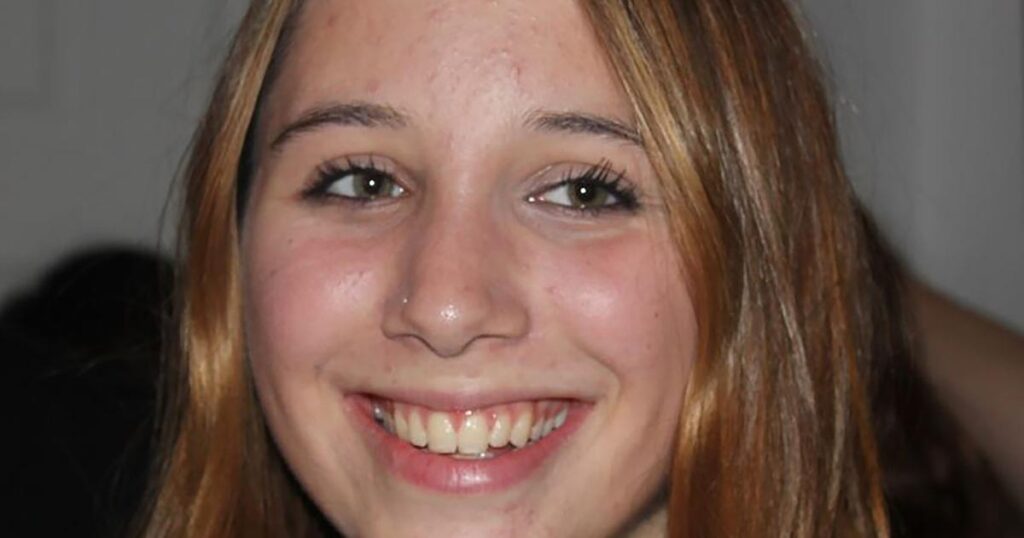Alice Figueiredo, 22, took her own life in a mental health unit at Goodmayes Hospital after more than 10 similar attempts.
Her death on July 7, 2015 followed a failure to remove plastic items from the communal toilets on Hepworth Ward that had been used by her to self-harm.
Following an Old Bailey trial, North East London NHS Foundation Trust (NELFT) was found guilty of failing to ensure the safety of a non-employee.
On Tuesday, November 11, the Trust was fined £565,000 over the health and safety breach – plus £200,000 costs.
In setting the amount, Judge Richard Marks KC noted its finances were in an “absolutely parlous state” and a fine could impact on services.
Ward manager Benjamin Aninakwa, 54, of Grays in Essex, was convicted of failing to take reasonable care for the health and safety of patients on the ward Ms Figueiredo was on.
Judge Richard Marks KC sentenced him to six months in prison, suspended for 12 months, plus 300 hours of unpaid work.

The judge described former head girl Alice as a “beautiful vibrant young woman” who was “hugely talented” and had an “extremely” attractive personality.
He said: “Her death at such a young age in the circumstances in which it occurred is a terrible tragedy.”
The judge said the accessibility of plastic in the communal toilets was a “very serious problem”.
He said: “I am in no doubt that there was a complete failure to adequately assess and manage the risk that this posed.”
Keeping the communal area temporarily locked while Alice was on the ward would not have posed a problem beyond one of “inconvenience”, the judge said.
Judge Marks said Aninakwa had also failed to address “major concerns” of Alice’s mother which should have “rung major alarm bells”.

He told the defendant: “You knew that she was suicidal – she was the only patient on the ward that was. Your negligent breach of duty went on for weeks.”
The judge took into account the 10-year delay in the case in his decision to suspend Aninakwa’s jail sentence.
Earlier, Alice’s mother and former hospital chaplain Jane Figueiredo said they had been treated with “dismissive contempt, belittling and playing down” their “well-founded” concerns in 2015.
In a victim impact statement, she told the court: “Such attitudes go against everything patient care stands for in our NHS.”
She told the court that her daughter was not known for fabricating stories about staff neglect or forming “arbitrary dislikes” towards them.

Addressing the ward manager, she told the court: “What she did not like on your watch in 2015, Mr Aninakwa, was being treated by some staff with unkindness, harshness, indifference, ignorance, even at times cruelty or being endangered and left at risk by neglectful and incompetent staff some of whom seemed to be clueless about their duties and responsibilities a fact you were often in denial of.”
She described her daughter as a “uniquely beautiful, brave, affectionate generous, kind, colourful, creative and luminous spirit”.
She said: “The impact of Alice’s untimely, preventable death on every aspect of my life and our life as a family has been immeasurable.
“The loss of our daughter was followed by many other losses. In my case one of the first and main things I lost was my job. I was a hospital chaplain working for NELFT in rehabilitation words, a job I loved but obviously could never return to that role after the catastrophic way they failed Alice, even though I had for example personally warned the ward on multiple occasions including in writing that she was in danger and her life was at risk.”
She added: “Our pain and suffering were also magnified in countless ways by the trust’s course of conduct after Alice died and the disingenuous ways they behaved towards us.”
Alice was first admitted to the Hepworth Ward in May 2012 with a diagnosis including non-specific eating disorder and bipolar affective disorder.
During her time on the acute psychiatric ward, the trust failed to remove plastic items from the communal toilets or keep them locked.
She had used plastic from the toilets to self-harm on at least 10 previous occasions.
However, the court heard of eight more incidents involving similar materials before Ms Figueiredo took her own life.
The suicide attempts were recorded in ward notes and other hospital records.
Aninakwa, who was subject to a performance improvement plan, had failed to remove plastic that could be used for self-harm and failed to ensure incidents of self-harm were recorded, considered and addressed, jurors had heard.
Aninakwa and the trust had denied wrongdoing, but declined to give evidence.
The investigation into Ms Figueiredo’s death began in 2016, but charges were not brought until September 2023.
NELFT was cleared of corporate manslaughter, and Aninakwa was found not guilty of manslaughter by gross negligence.
The first corporate manslaughter trial against an NHS trust collapsed in 2016 after a judge ruled there was no case to answer.




